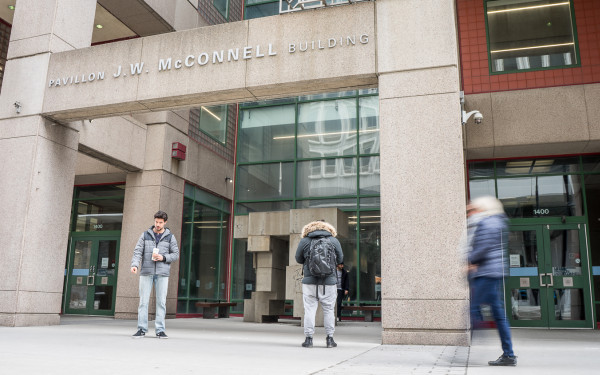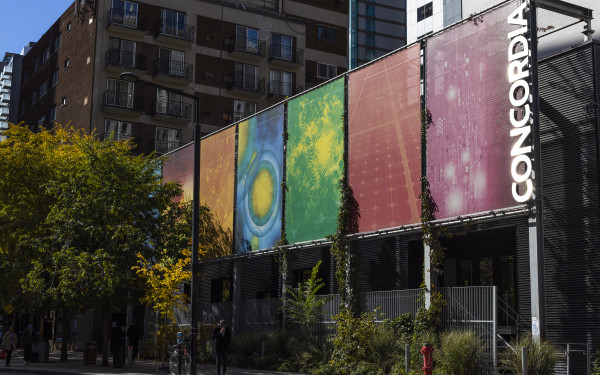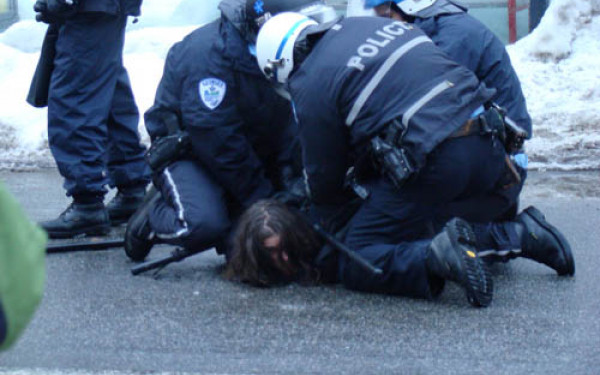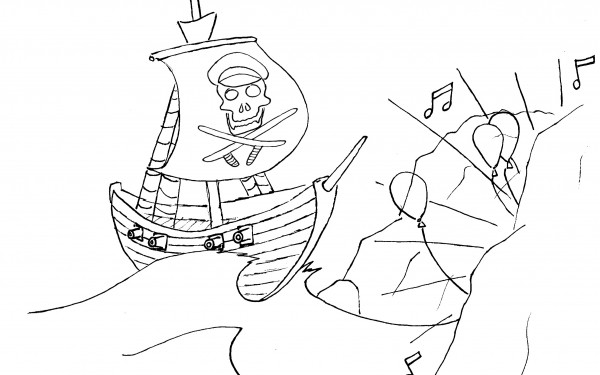If You Don’t Listen to Disabled People, Your “Help” Isn’t Helpful
Some Thoughts On Navigating the City With a Disability
Friday, Feb. 2 began as a nice day for me.
I went to class, had lunch and did some schoolwork and then hung out with a friend. I eventually went home, which was when my day took a turn.
I’m visually impaired and have some balance problems. Getting around in winter can be a pain, especially when the sidewalks become a mess of snow and ice and uneven terrain. I can’t see ice very easily and I can’t always tell when there is a mountain of snow in front of me, nor can I gauge how high I need to step in order to get over it. I’ve fallen because of this too many times to count, once even spraining my wrist.
During the winter, I use a cane meant for blind and visually impaired people and when I have managed to walk successfully on the sidewalk, it is done very slowly and gingerly. Sometimes, it is impossible to walk on the sidewalk altogether, which means I have to walk on the street for my own safety. While the sidewalks feel like an obstacle course, the city somehow manages to leave the streets spotless. This has been a way for me to get around for years.
On Friday, I was was walking along Parc Lafontaine Blvd. at around 11 p.m. when someone decided to alert the police to the presence of what I gathered was framed as a “blind girl walking in the middle of the road.” To be fair, I was walking in the middle of the road: Parc Lafontaine consists of two northbound lanes and two southbound lanes, giving cars plenty of space to move around me. In the middle of the road there is an island that separates the cars that are going in different directions, which is where I was walking.
Two police officers arrived quickly from the nearby police station with their lights flashing. They got out of their car and cornered me by the island. The woman began asking if I knew that I was in the middle of the street and the man waved his hands in front of my face, I imagine to assess how blind I am (note, this will not tell you anything about a person’s sight. This will just upset them).
A lot of people seem to think that having a cane means that you automatically need help. Some people will try to assist me when I’m simply standing at the corner waiting for my light. Many people will even grab me without my permission, which is never acceptable. They just don’t know how to help, and it appeared that these police officers didn’t know how to help either.
The police got very close to me. It was cold and dark and I began to panic. I felt trapped and had no idea where this would go and how I would get out of this situation. The police began asking me why I had been walking on the street. When I told them, they insisted it wasn’t safe. When I explained that it wasn’t safe on the sidewalk either because of how I could easily injure myself or become stranded, they told me my “logic didn’t make sense.”
I became more anxious by the second. I asked if I could please leave and said that I lived a minute walk away. They said no because they wanted to make sure that I wouldn’t walk on the street. I pleaded with them to understand. I might be visually impaired but I can gauge my own safety.
I asked about the point of this entire interaction and if there was a penalty for walking on the street. They told me that if they saw me again they would give me a fine. They proceeded to ID me. They offered me a lift but I did not feel comfortable with the idea of being in their car, never mind accepting a lift for that short of a distance.
The police officers had to help me get on to the sidewalk due to the ice and the snowbanks. When I tripped, one of the police officers told me to stop being dramatic and that this is Montreal and I have to “get used to it.” He also called me blind despite the fact that I explained that I’m visually impaired and said that if it really was that difficult, I should get some kind of helper.
The police officers left once I had turned the corner on to my street. I walked the rest of the way shaking and crying, my heart pounding heavily.
Now, I am stuck. At times, I literally cannot walk on the sidewalk. The streets are clean and I can walk at my own speed without falling over whereas I run that risk regardless of how careful I am on the sidewalks. They are not accessible to me and other disabled people like the streets are.
On the other hand, I am a university student, I work and pay my own rent. I cannot risk getting a fine by the police. There have been times this year when even leaving my apartment building has been difficult because of the conditions on my sidewalk. This interaction has made trying to get around much worse.
Disabled people face systemic roadblocks, roadblocks that don’t need to be there and could be removed without disturbing anyone, making our lives a whole lot easier. Until then, we have to find our own way to get what we need to get done. Our independence should not be threatened by the city or by the police. Disabled people live everywhere and disabled people should be able to go everywhere that able bodied people can go. We know our limits and we know how to make ourselves feel safe. I need people to listen when I say that I am not safe on the sidewalks.
On Friday night, I felt shaken. I had just wanted to go home and the police were loud, disrespectful, aggressive and most notably, wouldn’t let me leave. The way they spoke to me felt condescending and dehumanizing. There was nothing I could say that would get them to really listen to me. I had no one on my side, no one to back up what I was saying. I felt isolated. That night, I would burst into tears whenever I thought about the interaction.
I also felt angry. One of the police officers was acting as though I was crazy for walking in the streets, justifying the reason I shouldn’t with “I have worked here for five years and I have never seen anyone walk in the street because they are disabled before.” This seemed absurd to me, and the very next day I met an elderly man with a cane who was walking on the street because he could not walk on the sidewalk.
I am not the only disabled person to have trouble in the winter. I am not the only disabled person to rely on the spotless streets. I am not the only disabled person who is regularly subject to uncomfortable and inappropriate behaviour from strangers. I am not the only disabled person to be spoken to rudely and ignored by the police. I am not the only disabled person who has been asking for recognition. I am not the only disabled person who is tired.
I am not the only disabled person.
I wanted to tell this story because I am upset, hurt and feel significantly less safe than I did before. I also want to raise awareness.
Disabled people are told to access inaccessible spaces way too often. Disabled people are also often offered help in ways that are not helpful.
Please listen to disabled people, please respect our autonomy and our consent. Threatening to fine a disabled university student for navigating around this city will not help Montreal be a better place for anyone. I promise that I can see headlights much better than I can see ice on the sidewalk and I promise that I can see that many things need to change.

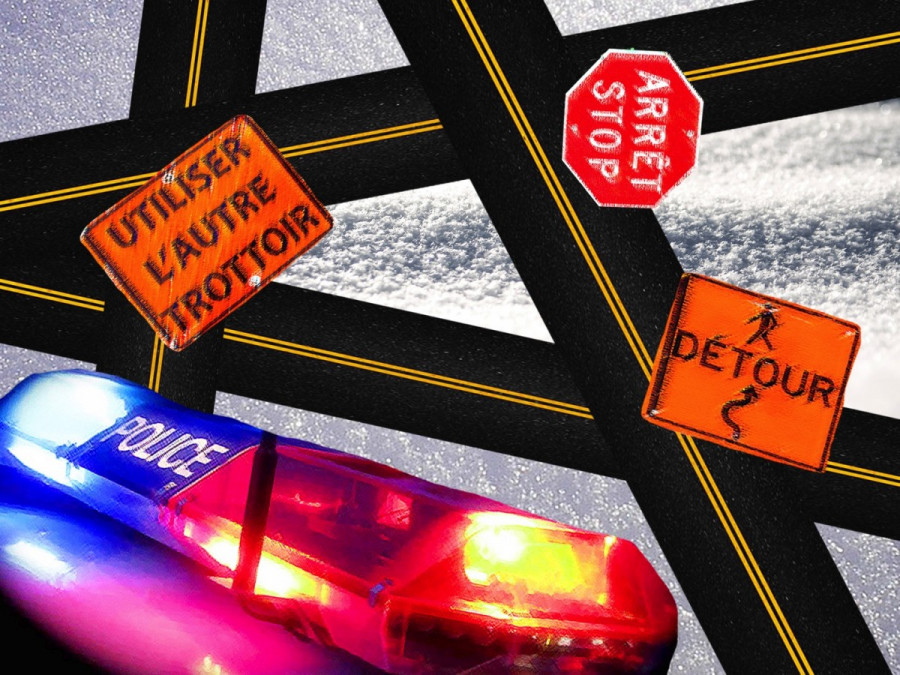
_600_832_s.png)

